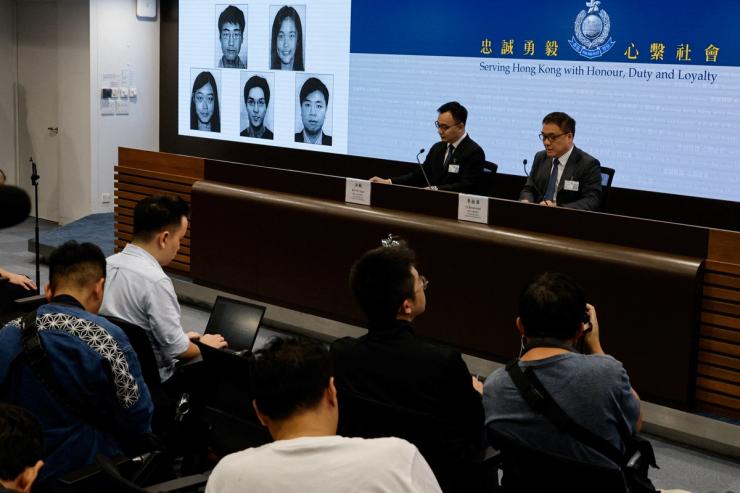The News
Hong Kong police announced bounties of HK$1 million (US$128,000) each for five prominent activists currently living overseas in self-exile.
The police have accused the opposition activists of various offenses under Beijing’s National Security Law, including secession, subversion, and colluding with foreign forces.
The five — Frances Hui, Joey Siu, Simon Cheng, Johnny Fok, and Tony Choi — are spread out across the U.K. and Washington. They have continued to advocate for greater freedoms in Hong Kong and provided support to immigrants who have relocated from the city.
“All of them, who have already fled overseas, have continued to commit the offense under the national security law that seriously endangers national security,” said Hong Kong’s chief superintendent Steve Li at a press conference Thursday.
Authorities had previously targeted eight activists currently living overseas with bounties.
SIGNALS
China’s long arm could extend to overseas activists
Hong Kong’s move came a week after Chinese state-owned newspaper Ta Kung Pao published an editorial arguing that Article 38 of the national security law can apply to those outside the city. It noted that as a member of the International Criminal Police Organization (Interpol), China can request assistance from other countries to capture fugitives, a strategy which the Hong Kong police said they would not “rule out,” the Hong Kong Free Press reported. One of the five accused, Joey Siu, who was a former policy advisor at the NGO Hong Kong Watch, told Reuters that this was the first time an American citizen had been placed under such a warrant, showing “the extraterritorial reach of the national security law and the chilling effect that follows.”
Rights groups want host governments to protect exiled activists
Hong Kong police in July said that eight other activists also living in self-exile abroad would be “pursued for life” under bounties — the first such use of the national security law. The new bounties prompted pushback from Western governments and rights groups, with the U.S. saying it “strongly” condemned the bounties and the UK asserting that it would “not tolerate” attempts to target individuals in Britain. But observers have called for more concrete actions from host countries of the activists. The UK and U.S. governments should go beyond expressing “concerns” about bounties, Human Rights Watch director Maya Wang said. “The Chinese government is reaching into their borders to dictate who can say what about which policies,” she wrote. “Isn’t that foreign interference?”



